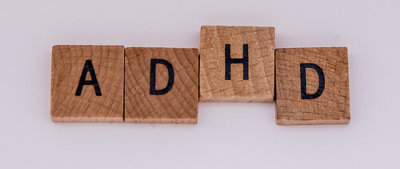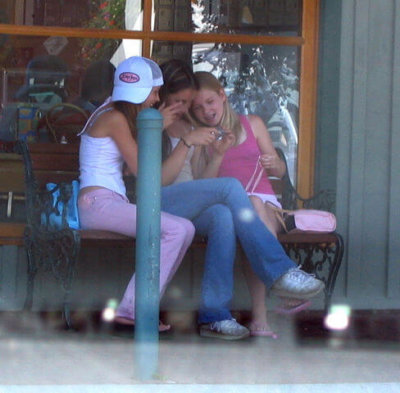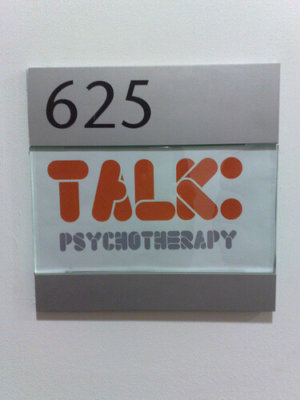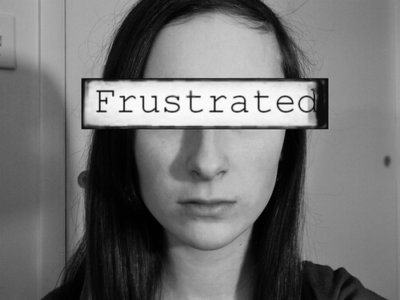“I Couldn’t Focus On Anything” : An ADHD Case Study

By: Practical Cures
by Andrea M. Darcy
Do you worry that you, or someone you love, has ADHD? Here I share my personal experience of just what it’s really like to grow up with attention deficit hyperactivity disorder.
(Want to read a list of symptoms? Read our comprehensive Guide to ADHD).
ADHD – A Case Study
“It’s like she lives in a bubble of her own making”, read the note one teacher sent home to my parents. But as usual, my habit of not being present was just attributed to shyness and intelligence. Like many kids with ADHD, I was exceedingly bright.
The new research on ADHD now recognises that many girls go undiagnosed because instead of hyperactivity, they are prone more to the major symptom of inattention. They are dreamy and always ‘clocking out’. That was me.
Although to be fair, I did have hyperactivity too. I’d get overexcited, or as my mother would say, ‘she’s on the ceiling again’. After I’d crash and need a nap. My mother felt it was chocolate and treats that caused i,t so I was not allowed any.
I had a lot of stressful experiences because of my ADHD that I now realise other kids probably didn’t. For example, I had to pull my first all-nighter aged only eight. We knew we had a science project to do all year. And I procrastinated and then did the entire thing in the 24 hours before it was due, crying from the stress. But I still won second place.
Surviving adolescence with ADHD
By adolescence my ADHD was in full force, but it was just attributed to ‘being a teen‘. High school was in Canad.a (My father, who I’ll get back to, was always moving us. I went to eight different schools in total.)
I was inevitably late for my first class every day. I struggled to remember my schedule, was often losing things, and would get in trouble for chatting in class. Simply as I was too distracted to see that the teacher was talking again. Again, because I was smart and had good grades, teachers overlooked a lot of my behaviour.

By: Richard Smith
Socially I can see my ADHD was a problem. I would join teams then drop out. And became known for changing my social groups ‘like she changes her clothes’, I overheard someone say. The comment stung.
I now see this was the ADHD symptom of impulsivity. It was the same issue that had me rip a portrait into pieces in the middle of art class when I couldn’t quite get the face right. I was incredibly embarrassed to see my teacher and fellow students staring at me, the pieces of my artwork on the floor.
Over focus, putting too much energy on the wrong thing, was also big issue. I would spend hours making the perfect cover for an assignment. Then have to do the assignment itself frantically at the last moment.
A ‘special exception’ is made
I got sent to the principal’s office for skipping a lot of classes. I explained that I was bored out of my mind. They could see something was different with me, I see that now. The said I was ‘too smart’ and needed an exception. I could go to class when I wanted as long as I maintained high grades. Now this makes me sad. I often think, what if they had of realised then I had ADHD? How would my life be different? My intelligence was a curse really, it meant I kept not getting help.
Can ADHD ruin your life? Put it this way. I forgot to choose my classes in time for my final year of high school, and the ones I needed to graduate were full. I was so upset I dropped out of school for a month and looked for a job. But I knew it was the wrong thing to do, so then frantically found another high school to take me. But I had to travel two hours a day to get there and back, and spend my last year at a school where I knew nobody.
University life with adult ADHD
University was a shock. I just couldn’t focus on anything, and I had no idea how to be organised and study. The teachers didn’t know me, so were far from forgiving with my poor timekeeping and tendency to talk loudly out of turn.
I had to maintain straight As to keep my scholarship and there was an art class I took as an elective. The teacher obviously didn’t like me, despite my art being better than most. And gave me a B+ instead of an A, even though I scored high on all my assignments. It meant the rest of university I had to work two jobs to get by, which just made me even more of a scattered mess.
ADHD and dating
In university I also started dating. This is one area where I think people need to talk about the damaging effects of ADHD more. I would rush into things before I knew someone then panic.
My tendency of talking in circles, or of wandering off mid-conversation, often had dates tell me they “couldn’t keep up with me”. Then there was the time I really liked someone and found out later he had no idea I was interested. I guess my distracted nature gave the entirely wrong sign.
Just like high school, I briefly dropped out of university, bored. Before begging my way back in at the last moment and finishing my degree. By the time I graduated, I was depressed.
I now realised there was something wrong with me, but just blamed myself for my inability to focus and be organised.
Finally getting the diagnosis of Adult ADHD
I began to drink and go out a lot, I suppose to bolster my falling self-esteem. It was at a party that I met a woman who spilled her soul to me, admitting she was seeing a psychiatrist for depression. I was fascinated. Could this help me? I’d never thought to try. She said she’d give me the number. I of course delayed calling for several weeks, but bumped into the woman again and felt pressured to go through with it.
And that was how I ended up sitting in a psychiatrist’s office across from a rather glamorous and aloof blonde doctor, expecting to be given antidepressants. Instead I was told I had ADHD and was offered a prescription for Ritalin. I walked out in a daze. I knew what ADHD was, but in my mind it equated to hyperactive children, not a 23 year-old like me. The way this woman diagnosed me in one hour flat left me feeling misunderstood and judged, too. I threw out the prescription, cancelled the next appointment, and didn’t talk about the experience to anyone.
Of course my life continued to be a mess. I kept messing up big opportunities by being impulsive. Like having a coveted big acting break, but instead hopping a plane and leaving the country when offered a last minute job teaching in Japan. My life was fun, but I was scattered, stressed, and lonely, and the depression kept returning.
Trying therapy when you have Adult ADHD

By: Banalities
At 28, feeling really awful about my inability to stay in a relationship, I again took a therapy referral from a friend.
This psychotherapist specialised in CBT (cognitive behavioural therapy). A slight man with little John Lennon glasses and a pink Ralph Lauren shirt in a soulless office with imitation expressionist art, I was sure it wouldn’t work and wanted to run out screaming.
I told him I had been diagnosed as ADHD but was sure it was a mistake. He ran me through a series of questionnaires and confirmed I did have it. But he said he was optimistic CBT would help.
My friend pushed me to try four sessions before quitting, promising me four was a magic number somehow. And oddly, she was right. Something clicked on the fourth session. I walked out liking him better and feeling hopeful I could make changes in my life.
This was the therapist that taught me about mindfulness meditation. It turned out he’d gone to Berkeley back in the day, and he was a lot cooler than his bad outfits. Near the end of my four months working with him I even went to a one-week meditation retreat, excited by how much calmer and focussed the meditation made me.
I continued the mindfulness meditation, and kept using what I had learned from the CBT process about questioning my thoughts before taking action. It really helped with my impulsivity and I had a few good years after that.
What other forms of therapy did I try?
I also tried psychodynamic psychotherapy. Friends had great results from it, but I would say that in some ways (and now I’ve read research to prove it) that was not the best choice for someone with ADHD. I started to overanalyse myself ,and my self-esteem, which people say therapy usually helps, got worse.
I do feel CBT is really a good choice for ADHD, as it helps reorganise the brain. Or nowadays I’d try a therapist who specialises in ADHD clients and see what they have to offer.
Life when you have Adult ADHD
I think that just accepting I had ADHD was the most helpful. It meant I could be more patient with myself, and focus on learning new ways of doing things that make living with ADHD easier. I am a huge fan, for example, of using a timer, as I have absolutely no sense of time and it helped me realise what can and can’t be done in an hour.
As for telling my family, I avoided it for years. I have an older sister who is very cynical and always making fun of my ideas about myself. To my surprise, when I did tell her about my diagnosis, she said she had thought so, and that it was hardly a surprise given our father. My father is a good example that ADHD often has a genetic component. He never sits down, never finishes a conversation. Alongside all those moves he put us through, he also burned his way through many jobs and is now on his fourth wife.
Did I try medication?
Yes. But not until an older adult. I was living in France at the time where the only option was was methlyphenidate. I tried both long release Concerta and just instant release Ritalin.
And it was awful, it did not work at all for me, no matter how I took it. It gave me bad headaches, severe insomnia, but what was the worst was that I was so dulled down I felt stupid. Yes, I’d sit oddly still for hours. But I’d get done in 4 hours what I could do in one hour unmedicated. So I stopped using any of it. I also then tried modafinil, it was the same thing. I felt spacey, stupid, slow, tired, and had brutal headaches.
Instead, now I make sure I keep up a regular routine of exercise, eat healthy, and take things like fish oils, which I feel help.
Would I wish to not have attention deficit disorder?
Of course being hard on oneself is another ADHD attribute, and when I remember that I try to shift my focus to see all I have achieved. I’ve travelled extensively, I run my own business, I was the first person I know to be a ‘digital nomad’, as I am always way ahead of the curve… I am doing ok.
And in some ways, I would not want to exchange the good sides of ADHD as I don’t know who I’d be without them. Like the way I can think fast and under pressure, see multiple perspectives all at once, be incredibly creative, etc.
If you feel you might have ADHD, it’s best not to self diagnose. Talk to your GP or book an assessment with a psychiatrist who specialises in Adult ADHD.
 Andrea M. Darcy is a health, lifestyle, and wellbeing writer and a mentor. She likes to write about trauma, relationships, and ADHD. Find her @am_darcy
Andrea M. Darcy is a health, lifestyle, and wellbeing writer and a mentor. She likes to write about trauma, relationships, and ADHD. Find her @am_darcy






I found this article very interesting thank you!
I just wonder how you managed to get mindfulness to work for you with impulsivity? Whenever I have tried it I either get too bored or unmotivated to do it, or I forget to do it when it really matters!
Hi Lauren, there are several things to try here. One is a support system. Join a group of others who you have to check in with, or have a mediation buddy who you check in with, or use an app that shares results with other users. Sometimes just knowing there is an audience can make even the most distracted amongst us more likely to perform. A timer is pretty essential too. And then there is the simple idea that you make it a non negotiable. You decide you will have a mindfulness practise, come what may. When you judge it as boring, you recognise that thought, let it go, and stay where you are, meditating, until that timer goes off. When you don’t want to do it, you again recognise this is just a thought, and that you have the choice to do it anyway. Brushing your teeth is pretty boring too, but we’d guess you’ve made that a non negotiable… see meditating as that important. the point is to do it every day if possible, so that it isn’t a case of doing it when it matters/doesn’t matter but an ingrained habit. With time you’ll see palpable results, and then you’ll probably want to keep it up, but until then, do it anyway. If there are days that are bad days and you miss it, then you don’t judge yourself. You just start again the next day. Best, HT.